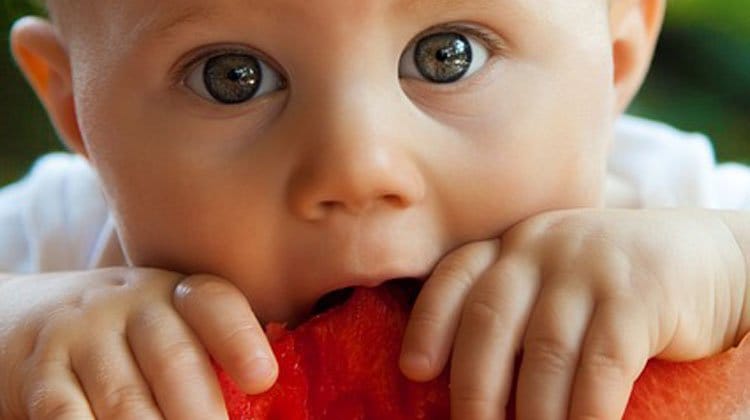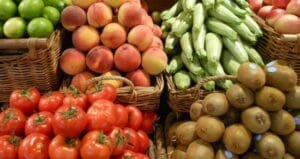Having a baby changes the life of every parent and priorities take a completely new outlook. The health of your child becomes your number 1 concern and healthy food one of your priorities. Mother’s milk is the optimal food for the newborn baby, but later in life we have to balance home cooked meals which are ecological and well adjusted for the age of the child.
How important is food for your little ones?
It is of paramount importance for every parent to understand the essential role of food and nourishment for attaining optimal health of every child, especially during the first years, when the immune system is being formed. Therefore education of young mothers in the importance of food selection is particularly important and consultation with pediatricians and nutritionists is highly recommended.
Is organic food is the best choice?
Given the susceptibility of children, the best way to protect their immunity is consumption of unpolluted food. Children are most exposed during the first year of their life because of the physiological immaturity of their organism and the speed of cell creation (increase of body mass) – which is only possible with regular and quality nutrition. The kidneys of infants are less competent driving out harmful substances from the organism while the liver cannot dissolve them. Until the sixth year the child’s body contains more water than fats, unlike grown humans. Fats that “hunt” and channel pesticides in the organism are less capable in the infant body, hence toxins reside in the young organism, in particular those dissolvable in water. The presence of toxins in children can lead to a less developed nervous system. Toxins in food can also affect children’s behavior and conduct. Research shows that chemicals like sodium monoglutamate, salicylates, amines, preservatives, additives and synthetic dyes can disrupt and disturb children’s natural behavior and disposition. Hyperactivity is one of the consequences of these harmful substances. Especially important is the intolerance to synthetic/artificial dyes found in sweet food and desserts, which stimulate children to hyperactive reaction – due to allergic manifestations. Excessive intake of sweets also contributes to hyperactivity in children.
So is organic food the best choice? It depends, and many scientists are sceptical. Your family doctor may advise organic food, while you can find studies that are inconclusive. Scientists just can’t seem to agree. Furthemore, certain procedures also use pesticides in organic foods, depending on the country where the goods are sold. Do your research and if you can find companies and brands that use no pesticides, and you can afford it, it might be a worthwhile investment when talking about children. When scientists finally agree, we’ll know for sure.
 We recommend…
We recommend…
In order to avoid all these troubles for the young body, you need to change their diet and exclude the harmful components. You can start from the earliest age, when you start giving other food to your baby besides breastfeeding, by adding purees of fruit and vegetables from carefully selected origins. In the period of breastfeeding, especially important is the diet of the mother, who must be careful about the origin and the quality of the food consumed, since the baby consumes the same food through the mother’s milk. When your child starts to intake solid food you must be careful to determine three main meals with one to two snack meals per day. The meals should be consisted from cereals, fruit, vegetables, some beef, chicken (not industrial chicken meat, but from chicken raised in a home farm), fish and legumes.
Mind the desserts
Although desserts tend to be our favorite part of the meal, you must take care and set-up some red lines. Children today become addicted to certain brand of sweets and snacks – which is exactly what the producer wishes – and by consuming the chemicals enabling this, the balance of the child’s organism is being upset. Homemade sweets are better, but you still must pay attention to the quantity of desserts in the diet of your child as sugar overdose leads to hyperactivity. Doctors and nutritionists recommend complete exclusion from the menu for gummy sweets, high sugar and fructose content cookies, sparkling drinks, dissolving soft drinks and the powders which they contain. These harmful products should be replaced by freshly squeezed juices, rich with vitamins and minerals and important to the development of the child and its immune system. A little determination goes a long way and by using pesticide free fruits and vegetables instead of processed foods we are providing our children with a healthy foundation.




